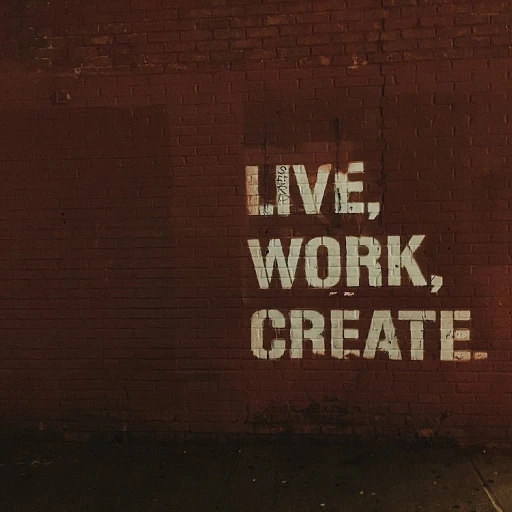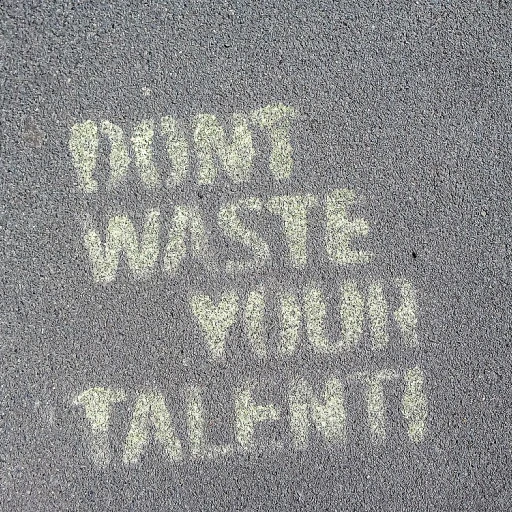
Understanding pending charges and background checks
What Are Pending Charges and How Do They Relate to Background Checks?
When you apply for a job, employers often run a background check to review your criminal history. One question that comes up frequently is whether pending charges—those that have not yet been resolved in court—will show up on a background check. Understanding this is important for both job seekers and hiring managers, as it can impact the hiring process and decisions.
Pending charges refer to criminal charges that have been filed but not yet adjudicated. This means the case is still open, and the court has not reached a verdict. These charges are different from convictions or dismissed cases, and their appearance on a background check depends on several factors, including the type of check, the state’s law, and the reporting practices of background check companies.
Background checks can include various types of records, such as criminal records, court records, and employment background history. The scope of what shows up in a background check can vary widely. Some checks focus only on convictions, while others may include pending criminal charges or even arrests that did not lead to charges. This is why it’s important to know your rights and what information employers are legally allowed to consider during the hiring process.
For more details on how criminal records are handled in specific states, you can read about understanding New Hampshire criminal background checks. Each state has its own rules about what can be reported and for how long, which can affect whether pending charges appear on your background check.
In the next sections, we’ll look at how background check companies access legal records, what factors influence whether a pending charge appears, and what employers actually see when they review a candidate’s background. We’ll also cover your rights under the law and offer practical tips for handling a pending charge during the employment process.
How background check companies access legal records
How Background Check Companies Gather Legal Information
When employers order a background check, they rely on specialized companies to access a candidate’s criminal history. These background check providers use a mix of methods to collect legal records, including pending charges and court records. The process is not as simple as running a single database search. Instead, it often involves:
- Searching state and county court records for criminal charges, including pending criminal cases
- Reviewing national criminal databases, which may aggregate information from multiple jurisdictions
- Accessing public records, which can include arrest records, pending charges, and sometimes even dismissed cases
Whether a pending charge will show on a background check depends on how up-to-date and thorough the search is. Some courts update their records daily, while others may have delays. This means that a pending charge could appear background reports if the court has reported it, but it might not show if the records are not current.
It’s important to know that not all background checks are created equal. Some employment background checks focus only on convictions, while others include pending charges or even non-conviction records. The type of check an employer requests, and the state law where the hiring process takes place, both play a role in what information is reported.
For a deeper dive into how pending charges can appear on background checks, you can read more in our detailed guide on pending charges and background checks.
Understanding how background check companies access and report legal records is key for both candidates and employers. It helps set expectations about what might show up during the hiring process and why certain criminal records, including pending charges, may or may not appear.
Factors that influence whether a pending charge appears
Key Elements That Decide If Pending Charges Show Up
Whether pending charges appear on a background check depends on several factors. The process isn’t always straightforward, and there’s no universal rule. Here’s what typically influences if a pending criminal charge will show up in your background records:
- State and Local Laws: Laws vary widely by state and even by city. Some states restrict the reporting of pending charges on employment background checks, while others allow them to appear. For example, certain states have adopted "ban the box" laws, which limit when and how employers can ask about criminal history during the hiring process.
- Type of Background Check: Not all background checks are the same. A standard criminal background check may show pending charges, but specialized checks—like those for sensitive positions—might dig deeper into court records and pending criminal matters.
- How Courts Report Records: The way courts update and share their records can impact what shows up. Some courts report pending charges to background check companies quickly, while others may have delays or incomplete records.
- Background Check Company Practices: Each company has its own methods for gathering and reporting criminal records. Some may include every pending charge found in public records, while others filter out charges that haven’t resulted in a conviction.
- Employer Policies: Employers may have different standards for what they consider relevant in a candidate’s criminal history. Some only care about convictions, while others pay close attention to any pending criminal charges that appear background checks.
For those interested in how employment details are uncovered during the hiring process, check out this guide to finding out where someone works.
Understanding these factors can help candidates and employers navigate the complexities of criminal background checks and pending charges. It’s important to stay informed about your state’s laws and know what might appear on your record during a background check.
What employers see and how they interpret pending charges
What Information Employers Receive from Background Checks
When employers run a background check during the hiring process, the details they see depend on several factors. Generally, a criminal background check will show any criminal records, including pending charges, if those records are accessible in the state or court system. However, not all background checks are the same, and the level of detail can vary based on the type of check, the state law, and the reporting practices of the background check company.How Employers Interpret Pending Charges
Employers often look at pending criminal charges differently than convictions. A pending charge means the case is still open and has not yet been resolved in court. Some employers may see a pending charge as a red flag, while others may consider the nature of the charge, the role being filled, and the candidate’s overall criminal history. In some industries, especially those involving vulnerable populations or sensitive information, even a pending charge can impact employment decisions.- Nature of the charge: Violent or financial crimes may be viewed more seriously than minor offenses.
- Relevance to the job: A pending charge related to the job duties (for example, theft for a cashier position) may carry more weight.
- Company policy: Some employers have strict policies about any criminal record, while others follow a case-by-case approach.
- State and local law: Laws like "ban the box" or fair chance hiring rules may limit how and when employers can consider pending charges.
Legal Limits on Use of Pending Charges
Federal and state laws set boundaries on how employers can use criminal records, including pending charges, in employment background checks. For example, the Equal Employment Opportunity Commission (EEOC) advises employers to consider the nature of the offense, the time since the charge, and its relevance to the job. Some states restrict employers from considering arrests or charges that did not lead to a conviction, while others allow pending charges to be considered until resolved. Employers must also comply with the Fair Credit Reporting Act (FCRA), which requires them to notify candidates if information from a background check, such as a pending criminal charge, will be used to make an adverse employment decision. This gives candidates a chance to explain or dispute the information.What This Means for Candidates
If you have a pending charge on your record, it may appear on a background check and be seen by potential employers. However, how it is interpreted will depend on the employer’s policies, the type of job, and the relevant laws in your state. It’s important to know your rights and be prepared to discuss the situation openly if it comes up during the hiring process.Your rights and protections during the hiring process
Your Rights When Facing a Pending Charge in the Hiring Process
When you’re applying for a job and have a pending charge on your record, it’s important to know your rights. The hiring process can feel overwhelming, especially when background checks are involved. Here’s what you should keep in mind:- Fair Credit Reporting Act (FCRA) Protections: Employers who use third-party background check companies must follow the FCRA. This law requires them to get your written permission before running a background check. If a pending criminal charge or any criminal history influences their decision, they must notify you and provide a copy of the report.
- "Ban the Box" Laws: Many states and cities have adopted "ban the box" laws. These laws restrict employers from asking about criminal records, including pending charges, on initial job applications. The goal is to give every candidate a fair chance before criminal background checks come into play. However, the specifics vary by state and local law.
- Right to Dispute Inaccuracies: If you find that a pending charge or any criminal record is incorrect or outdated on your background check, you have the right to dispute it. Background check companies are legally required to investigate and correct errors in your records.
- State-Specific Protections: Some states limit how employers can use pending criminal charges in hiring decisions. For example, certain states only allow consideration of charges that are directly related to the job or require that charges must have resulted in a conviction before they can be considered.
- Employer Disclosure Requirements: If an employer decides not to hire you based on information from your background check, they must provide you with a pre-adverse action notice. This gives you a chance to explain the pending charge or provide additional context before a final decision is made.
What You Can Do if a Pending Charge Shows Up
- Ask the employer for a copy of your background check report if a pending charge or criminal record influenced their decision.
- Review the report for accuracy. If you see errors, contact the background check company to dispute the information.
- Prepare to explain the circumstances of your pending charge. Providing context can help employers understand your situation and see your side of the story.
- Know your state’s laws. Some states offer more protections for candidates with pending criminal charges or criminal records during the employment background check process.
- Consider consulting a criminal defense attorney if you believe your rights have been violated or if you need help navigating the legal aspects of employment and pending charges.
Tips for handling a pending charge on your record
Communicating About a Pending Charge
If you have a pending charge on your criminal record, transparency is key during the hiring process. When a background check is likely to reveal pending charges, it’s often better to address the issue proactively with potential employers. This can help you control the narrative and show responsibility.- Be honest if asked about your criminal history or pending criminal charges. Lying or omitting information can harm your credibility if the charge appears on a background check.
- Explain the context of the pending charge, focusing on facts and what steps you are taking to resolve the situation.
- Highlight your qualifications and positive employment history to show you are more than your background record.
Understanding Your Rights and State Laws
Employment background checks are regulated by federal and state law. Some states have adopted ban the box laws, which restrict when employers can ask about criminal records or pending charges during the hiring process. Research your state’s laws to understand what employers can legally ask and when criminal charges appear on background checks.- Review your state’s ban the box law or fair chance hiring policies to know your rights as a candidate.
- Employers must follow the Fair Credit Reporting Act (FCRA), which gives you the right to dispute inaccurate or outdated information on your background check.
- Request a copy of your background check if you are denied employment based on your criminal record or pending charges.
Taking Action to Protect Your Record
Pending charges can show up in court records and criminal background checks, but you may have options to limit their impact:- Consult a criminal defense attorney to understand your legal options and whether you can seal or expunge the pending charge from your criminal history once resolved.
- Stay informed about the status of your case by checking court records regularly.
- Gather documentation that demonstrates your efforts to address the charge, such as court documents or letters from legal counsel.












